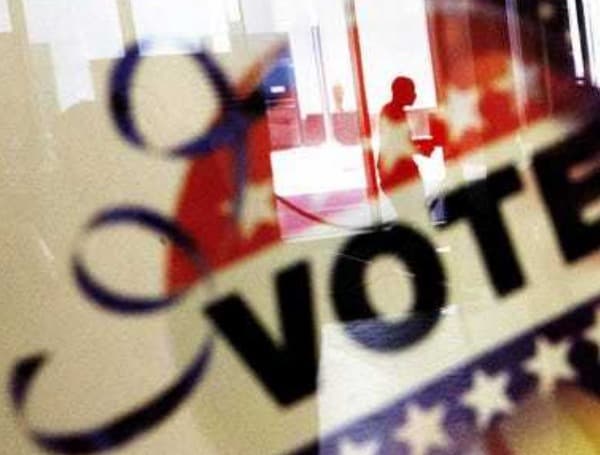As of Wednesday morning, nearly 5.7 million Floridians—approximately 40.8 percent of registered voters in the state—had already cast their ballots ahead of next week’s general election.
Data from the Florida Division of Elections shows that 3,340,065 people have voted at early voting locations, while 2,357,922 submitted mail-in ballots. Florida has approximately 13.95 million registered voters.
Among those who have voted so far, 2,564,067 are registered Republicans, 1,896,098 are Democrats, 1,112,145 are unaffiliated, and 125,677 are registered with third parties.
READ: Florida Company Guilty Of Mislabeling Masks, Price Gouging During COVID-19 Pandemic
Florida voters are weighing in on six constitutional amendments during the November 5 election, which could lead to significant changes across the state.
Here’s a brief overview of each amendment:
Amendment 1: Establishing School Board Elections as Partisan
- What it does:
This amendment would shift school board elections back to partisan races. Candidates would be listed with their political party on the ballot, reversing a 1998 decision to make school board elections nonpartisan. - A “Yes” vote means:
School board elections would become partisan again, allowing candidates to be nominated by political parties and have their affiliation listed on ballots starting in 2026. - A “No” vote means:
School board elections remain nonpartisan as they currently are.
Amendment 2: Right to Hunt and Fish
- What it does:
Enshrines the right to hunt and fish in the Florida Constitution, establishing these activities as the preferred method of managing wildlife. - A “Yes” vote means:
Hunting and fishing would become constitutionally protected rights, making it harder for lawmakers to impose restrictions. - A “No” vote means:
The state legislature retains more flexibility to regulate hunting and fishing for conservation purposes.
Amendment 3: Legalization of Recreational Marijuana
- What it does:
Legalizes marijuana for recreational use for adults 21 and older, allowing them to purchase and possess cannabis from licensed dispensaries. - A “Yes” vote means:
Recreational marijuana would be legalized in Florida, allowing adults to buy and use marijuana without a medical card. - A “No” vote means:
Recreational marijuana remains illegal.
Amendment 4: Abortion Access
- What it does:
Legalizes abortion in Florida until fetal viability, typically around 24 weeks, and allows abortions when necessary to protect a patient’s health. - A “Yes” vote means:
Abortion would be legal until fetal viability or to protect the health of the mother. - A “No” vote means:
Abortion remains illegal after 6 weeks, except in cases where two physicians agree the pregnant person’s life is at risk.
Amendment 5: Homestead Exemption Inflation Adjustment
- What it does:
Ties the homestead property tax exemption to inflation, potentially reducing the amount homeowners pay in property taxes. - A “Yes” vote means:
The value of the homestead tax exemption would adjust annually based on inflation. - A “No” vote means:
The homestead exemption remains unchanged, regardless of inflation.
Amendment 6: Repeal of Public Campaign Financing
- What it does:
Eliminates public financing for candidates running for statewide office in Florida, including governor and attorney general. - A “Yes” vote means:
Public funding for these candidates would end. - A “No” vote means:
Public financing for statewide candidates would continue.
Please make a small donation to the Tampa Free Press to help sustain independent journalism. Your contribution enables us to continue delivering high-quality, local, and national news coverage.
Android Users: Download our free app to stay up-to-date on the latest news.
Connect with us: Follow the Tampa Free Press on Facebook and Twitter for breaking news and updates.
Sign up: Subscribe to our free newsletter for a curated selection of top stories delivered straight to your inbox.

